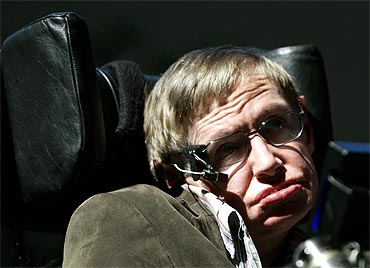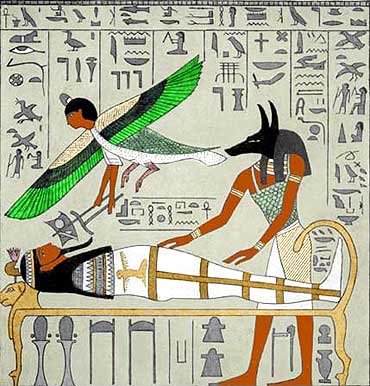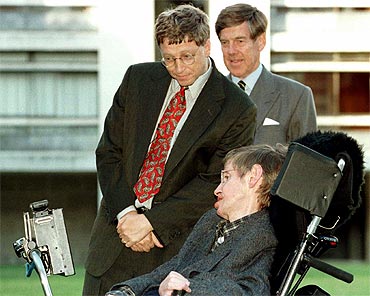 | « Back to article | Print this article |
No heaven, no afterlife, says Stephen Hawking
Celebrated Cambridge-based scientist Stephen Hawking has said a belief that heaven or an afterlife awaits us is a "fairy story" for people who are afraid of death.
Author of 'A Brief History of Time', Hawking said in an interview to 'The Guardian' on Monday that there was nothing beyond the moment when the brain flickers for the final time.
Hawking was diagnosed with motor neurone disease at the age of 21.
He said: "I have lived with the prospect of an early death for the last 49 years. I'm not afraid of death, but I'm in no hurry to die. I have so much I want to do first."
Please click NEXT to read more...
'That is a fairy story for people afraid of the dark'
He added: "I regard the brain as a computer which will stop working when its components fail. There is no heaven or afterlife for broken down computers; that is a fairy story for people afraid of the dark".
In the interview, Hawking rejected the notion of life beyond death and emphasised the need to fulfil our potential on Earth by making good use of our lives.
In answer to a question on how we should live, he said, simply: "We should seek the greatest value of our action."
While answering another question, he spoke of the beauty of science, such as the exquisite double helix of DNA in biology, or the fundamental equations of physics.
'It is a matter of chance which we are in'
Hawking is scheduled to deliver a lecture in London on Tuesday on the topic, "Why are we here?"
"Science predicts that many different kinds of universe will be spontaneously created out of nothing. It is a matter of chance which we are in," he said.
Hawking suggests that with modern space-based instruments, such as the European Space Agency's Planck mission, it may be possible to spot ancient fingerprints in the light left over from the earliest moments of the universe and work out how our own place in space came to be.


